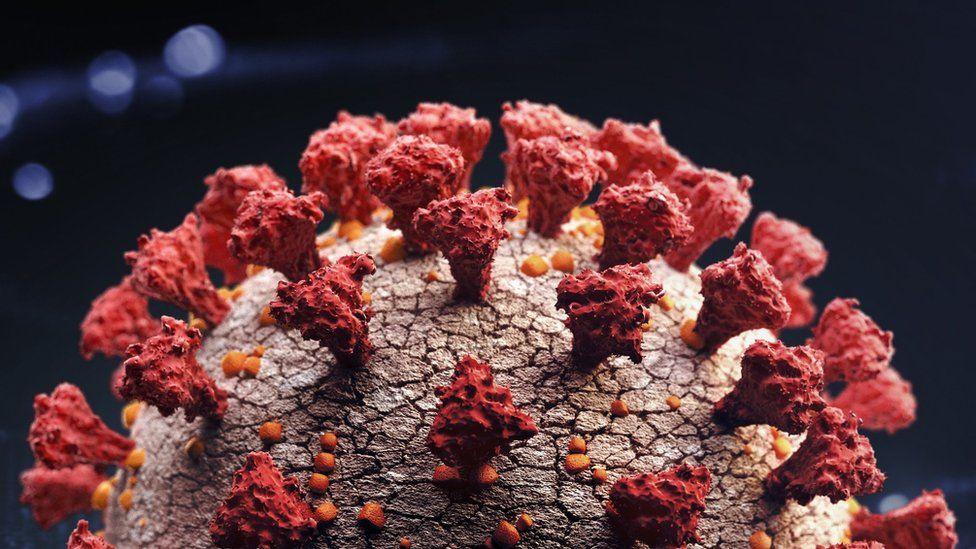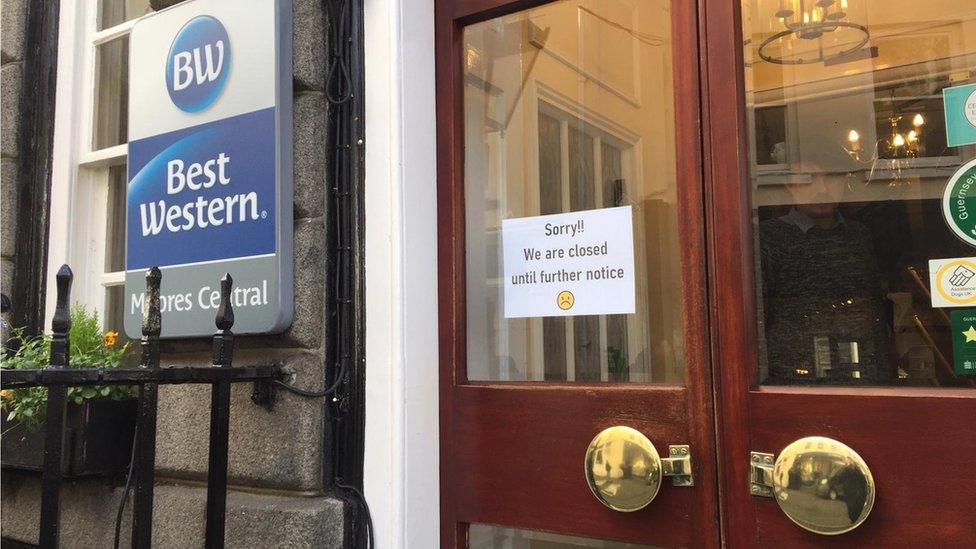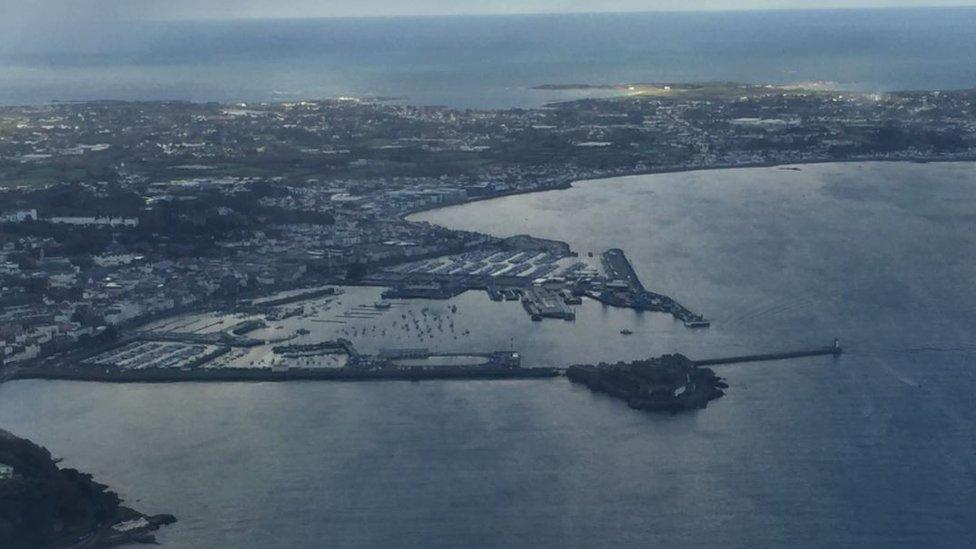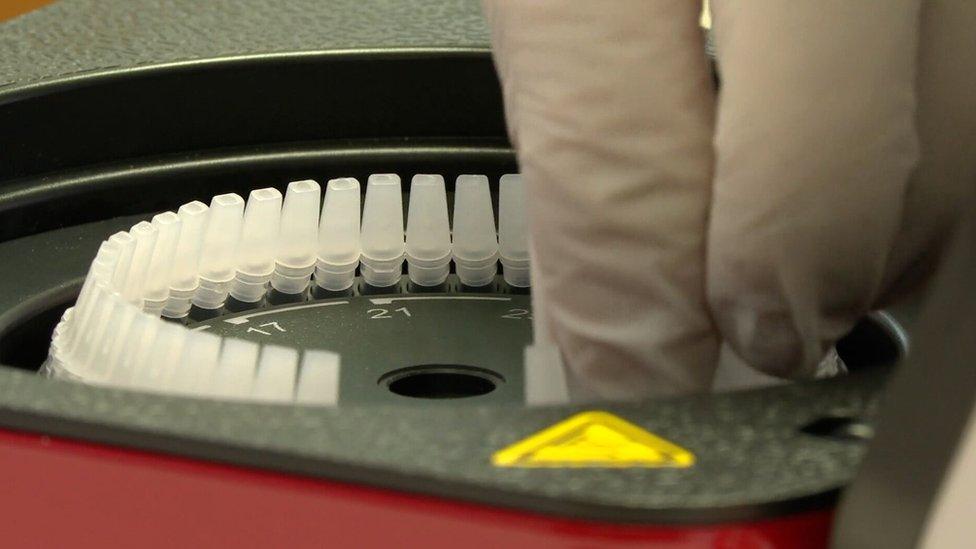Covid-19: Guernsey outbreak linked to more infectious 'Kent' strain
- Published

Over 430 new coronavirus infections have been detected in the bailwick since 22 January
A more infectious coronavirus variant is responsible for Guernsey's recent outbreak, health bosses have confirmed.
The outbreak was detected on 22 January and has led to 431 infections so far in Guernsey.
DNA Analysis of samples from the first four cases confirmed they had the variant of Covid-19 first seen in Kent, Dr Nicola Brink said.
The director of public health said the result helped explain the "extremely rapid spread" seen in the island.
The "Kent" B117 variant was spotted in south east England in September and caused a sharp rise in cases before Christmas.
It is now present across the UK and in other countries.
There were 366 active Covid-19 cases in Guernsey on Monday, with 65 people recovering from the virus since a lockdown was called on 23 January, the latest figures show, external.
Over the weekend 30 Covid-19 cases were discovered, four of which were from an unknown community source and the remaining 26 from contact tracing.
Ten people with the virus are in hospital, two of whom are in intensive care.
Two of those in hospital are from a recent outbreak in a care home which led to residents being cared for in hospital while staff self-isolated, the States said.
Dr Brink confirmed there had been a case of the virus detected in a staff member of a second care home.
She added this was an "example of the system working", as the worker had come forward for testing after developing mild symptoms of coronavirus.
"We immediately then tested all of the residents and all of the staff of the care home and we found no positives at all," Dr Brink added.

Follow BBC Guernsey on Twitter, external and Facebook, external. Send your story ideas to channel.islands@bbc.co.uk, external.
Related topics
- Published5 February 2021

- Published5 February 2021

- Published4 February 2021

- Published4 February 2021

- Published3 February 2021

- Published2 February 2021
